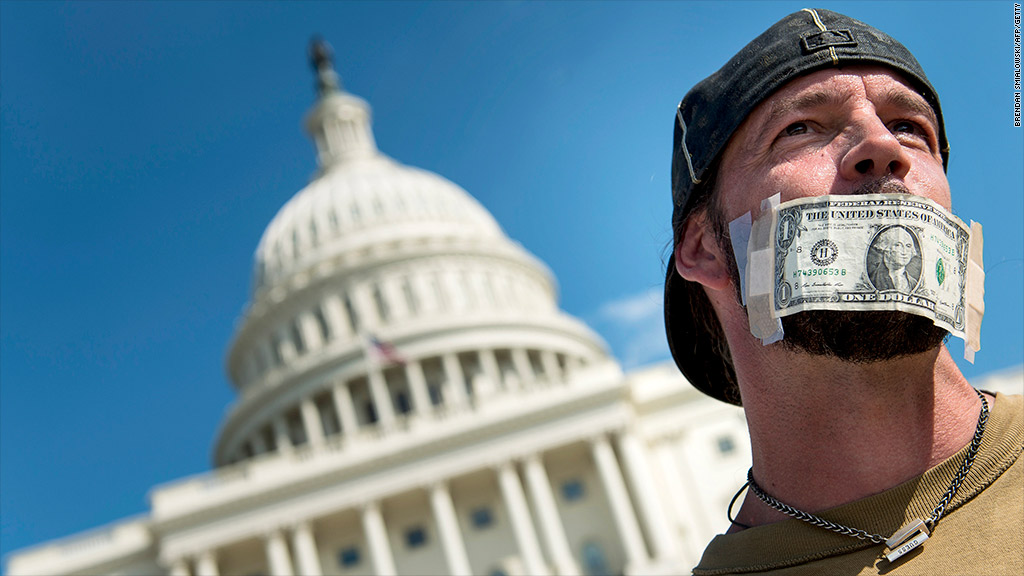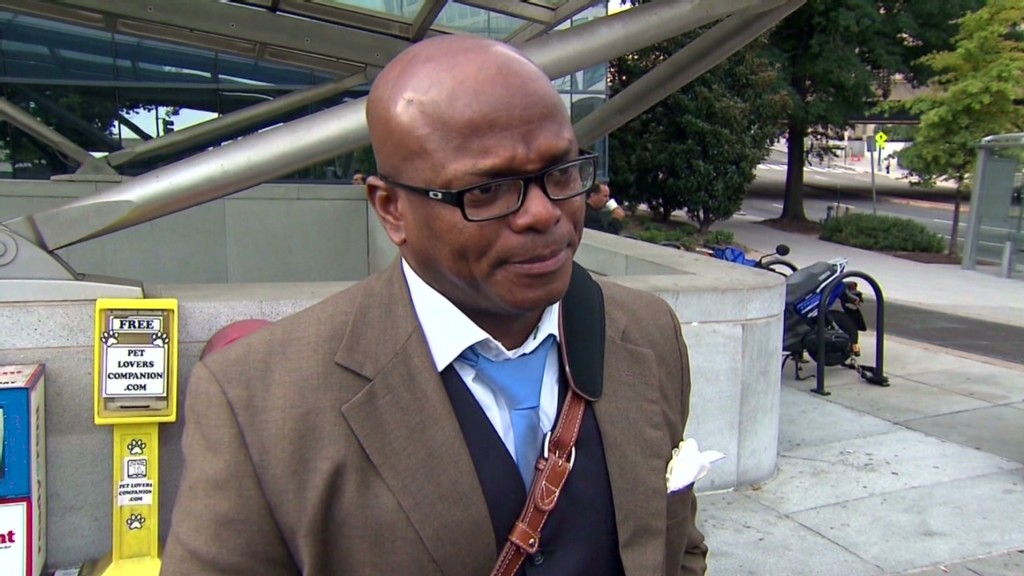
Nearly 500,000 federal employees are staying home from work because of the government shutdown. There's a good chance they'll be paid for the time they're not on the job. That doesn't sit right with some people.
"It doesn't make sense to pay people who are not working," said Rick Manning, vice president of public policy at Americans for Limited Government, an advocacy group. "That's not how it's done in the private sector."
When the shutdown began last Tuesday, federal workers deemed essential were told to report to work, while those considered non essential were sent home, presumably without pay. Those still on the job may not get paid until after the shutdown ends. But now it seems that furloughed workers could also receive full pay after the government reopens for business.
Paying the furloughed workers is not a done deal, but it's looking likely.
On Saturday the House of Representatives voted unanimously to give the out-of-work civil servants full back pay. The White House said it will support the measure. Its fate in the Senate is a bit less certain, but during the 1995-1996 shutdown, furloughed federal workers also received full back pay.
Related: Federal workers: How the shutdown hurts
The amount of money these employees may be owed -- maybe $115 million a day collectively -- is not enough to put even a small dent in the federal deficit, and no one is arguing the shutdown itself is an attempt to save the government money. But paying people to do nothing, especially when many say the shutdown is about long-term concerns over the nation's fiscal health, strikes some people as unfair.
South Carolina Republican Representative and former Governor Mark Sanford thinks that if furloughed employees are going to receive pay, they might as well be put to work.

On Monday, Sanford ordered his staff back to work, saying that if Congress was going to pay them, "anything less would amount to an extended taxpayer subsidized vacation."
For Manning, it's more about parity with the private sector. When a factory closes temporarily to retool or a utility shuts down to make upgrades, those employees are not given their full salaries, he said. Instead, they have to file for unemployment -- which usually pays a fraction of a person's salary.
"On a personal level, my heart goes out to them," he said. "But to treat a public sector worker differently than a private sector worker is just wrong."
Related: Furloughed federal employees drink up around D.C.
But not all private sector workers that are furloughed are stuck without full pay, said John Delaney, dean of the businesses school at the University of Pittsburgh and an expert on labor relations.
In the auto sector, worker's vacations are often tied to the time the factories retool, said Delaney. So while the furlough might amount to a forced vacation, it doesn't usually translate into a loss of pay -- a loss that could mean eviction or bankruptcy for those living paycheck to paycheck.
There are other instances where private businesses pay their employees when they can't get to work through no fault of their own. Last year's Hurricane Sandy is one example. Many private employers in the Mid Atlantic region did not dock pay from employees who couldn't get to work.
A company's decision to pay workers during extraordinary times is often not driven by a cold calculation of the bottom line, but rather because "we value them as workers," said Delaney.
The writer's wife is a furloughed federal employee


